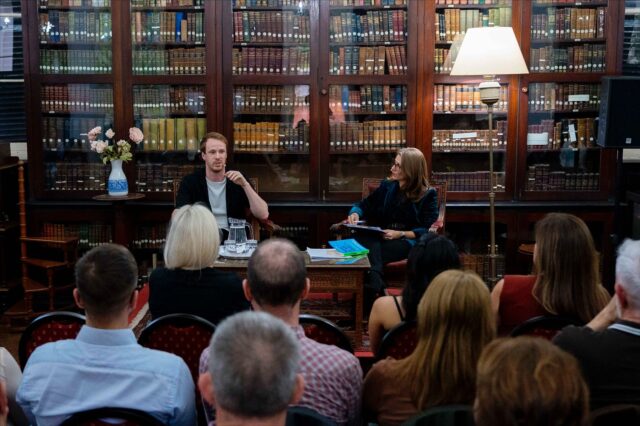Alex Partridge on late ADHD diagnosis and feeling misunderstood
A late diagnosis of ADHD at the age of 34 was instrumental for Alex Partridge, founder of UniLad and LadBible, and author of ‘Now It All Makes Sense’.
The book stemmed from his podcast, ADHD Chatter, which has featured over 300 experts on ADHD from across the world.
It covers a range of topics including ADHD in children, the workplace, rejection sensitive dysphoria, productivity and the workplace.
Speaking at the Gibunco Gibraltar Literary Festival, Mr Partridge described how he felt “very misunderstood, very different” his whole life since he was a child.
This led to him being an adult with low self-esteem who was very sensitive to criticism. Alongside he had an “internalised hyperactivity” in his mind, he said.
“I describe it as having 10 highly caffeinated squirrels, each pulling me in a different direction,” he said.
“And in some environments those squirrels can turn into entrepreneurialism and creativity and pattern recognition.”
“I truly believe I was able to see details that other people miss, but in other environments like when I was in a classroom and had to sit still, those squirrels had nowhere to go and they turned into a lot of anxiety.”

In answer to questions from Gibraltar Cultural Services Head of Development Davina Barbara, Mr Partridge spoke about his entrepreneurial tendencies from a young age, including designing his own board games, then starting a pizza delivery business at university, then leaving university altogether after LadBible and UniLad became global sensations on social media.
Overwhelmed by its rapid growth and popularity, Mr Partridge met with two men who he was going to go into business with.
Although his intuition was telling him something was off, he signed a contract with them and was soon kicked out of the company.
He turned to alcohol for help and ended up in hospital.
After a five-year legal battle he won the case and once again UniLad and LadBible were his.
The bigger challenge was the “huge mental health battle that nearly cost [him his] life”.
“It was so clear that I signed it because I was such a people pleaser, had no ability to put any boundaries around myself, didn't know how to stand up to myself or say no,” he added.
Mr Partridge began seeing a psychologist and was diagnosed with ADHD.
Reflecting on his diagnosis, Mr Partridge said ADHD goes beyond being a neurodevelopmental disorder characterised by traits of impulsivity and forgetfulness.
“It’s creativity, it’s pattern recognition, it’s being calm in a crisis, it’s being able to see things that other people miss,” Mr Partridge said.
“It’s having intuition but not always the courage to listen to it.”
“It’s the ability to see unique solutions to difficult problems because people with ADHD are the world’s best problem solvers.”
“This is because we have learned the solution to feeling different from a very young age is to change who we are in order to fit in.”
Although society is hearing more about ADHD there is still a long way to go in terms of assessments and diagnosis.
Women and girls have been very let down by the medical community over the years, and are only just receiving their diagnosis in recent years, Mr Partridge said.
He added that in total some 4.7% of the population meet the criteria for ADHD and this is important, he said, because ADHD can bring other comorbidities such as depression and anxiety.









